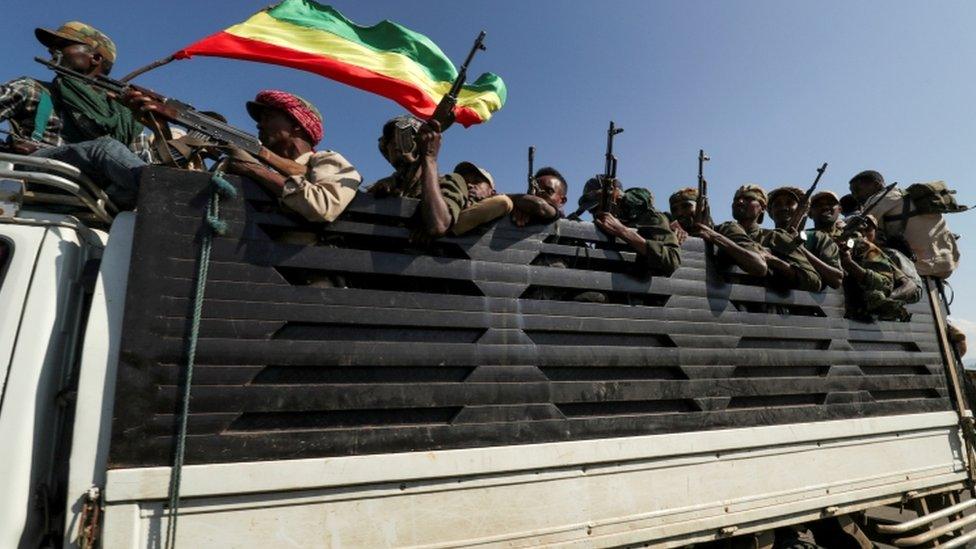Ethiopia's Tigray crisis: UN 'alarmed' by treatment of Eritrean refugees
- Published
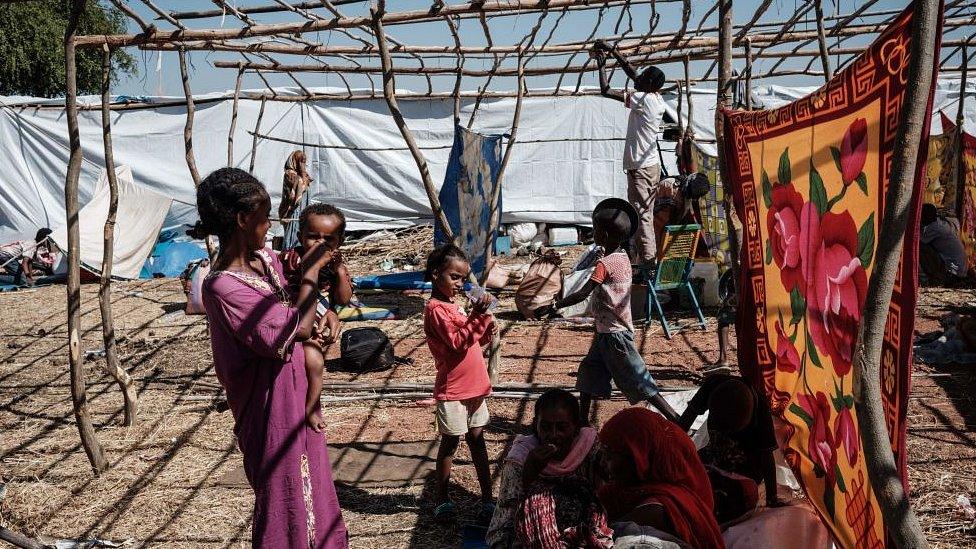
Tens of thousands of people have fled the fighting in Tigray
The head of the UN refugee agency says he is "deeply alarmed" by reports of Eritrean refugees in the Ethiopian region of Tigray being killed, abducted and forcibly returned to Eritrea.
Filippo Grandi said if such acts were confirmed, it would be a major breach of international law.
Mr Grandi said the UN needed unhindered access to four refugee camps in Tigray.
The UN has said the forced return of Eritrean refugees to these camps was also completely unacceptable.
Ethiopian forces have been battling the Tigray People's Liberation Front (TPLF) in the region since 4 November.
The government says it is in control of Tigray and the conflict is over. However, TPLF leaders say they are still fighting on various fronts.
On Friday, the Ethiopian government said it was returning Eritrean refugees who had fled to the capital Addis Ababa from camps in Tigray.
Allow X content?
This article contains content provided by X. We ask for your permission before anything is loaded, as they may be using cookies and other technologies. You may want to read X’s cookie policy, external and privacy policy, external before accepting. To view this content choose ‘accept and continue’.

Nearly 100,000 Eritrean refugees have been living camps in Tigray. They fled political persecution and compulsory military service, long before the current conflict.
"A large number of misinformed refugees are moving out in an irregular manner," a government statement said. "The government is safely returning those refugees to their respective camps."
Food was being transported to the camps, the statement added.
Three consequences of the ongoing crisis in Tigray
Reuters news agency said it had received "frantic calls" from refugees in Addis Ababa. They said they had been told they would be taken by bus back to Tigray but they feared they were being transported back to neighbouring Eritrea.
One woman said many Tigrayans were angry with the refugees because they accuse Eritrea of sending troops into Ethiopia to help battle the TPLF. The US has accused Eritrean forces of entering Tigray, something both Ethiopia and Eritrea deny.
"Some Tigrayan people beat up my husband," the woman told Reuters. "People there were saying 'your country is coming here and attacking us. We will kill you too.' We were getting so scared."
The BBC’s Anne Soy reports from a refugee camp on the Sudan-Ethiopian border
Mr Grandi said the UNHCR and its partners had had no access to the four Eritrean refugee camps, external inside Tigray for more than a month "putting the safety and survival of the refugees at great risk".
"Over the last month we have received an overwhelming number of disturbing reports of Eritrean refugees in Tigray being killed, abducted and forcibly returned to Eritrea. If confirmed, these actions would constitute a major violation of international law," he said.
Mr Grandi said he was "strongly urging the government of Ethiopia to continue to uphold their responsibility towards refugees under international law".
What is the conflict about?
The conflict started on 4 November, when Prime Minister Abiy Ahmed ordered a military offensive against regional forces in Tigray.
He said he did so in response to an attack on a military base housing government troops in Tigray.
The escalation came after months of feuding between Mr Abiy's government and leaders of Tigray's dominant political party, the TPLF.
For almost three decades, the party was at the centre of power, before it was sidelined after Mr Abiy took office in 2018 in the wake of anti-government protests.
- Published8 December 2020
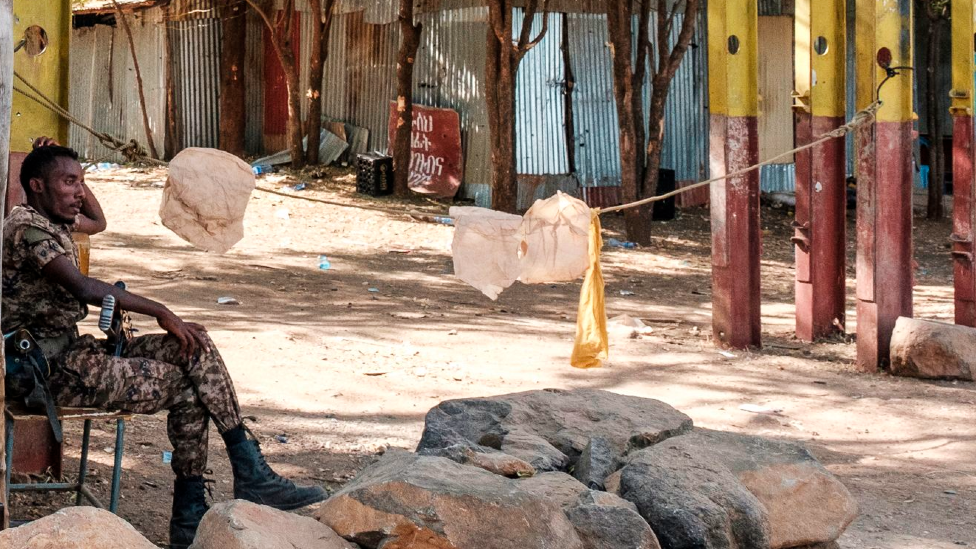
- Published3 December 2020
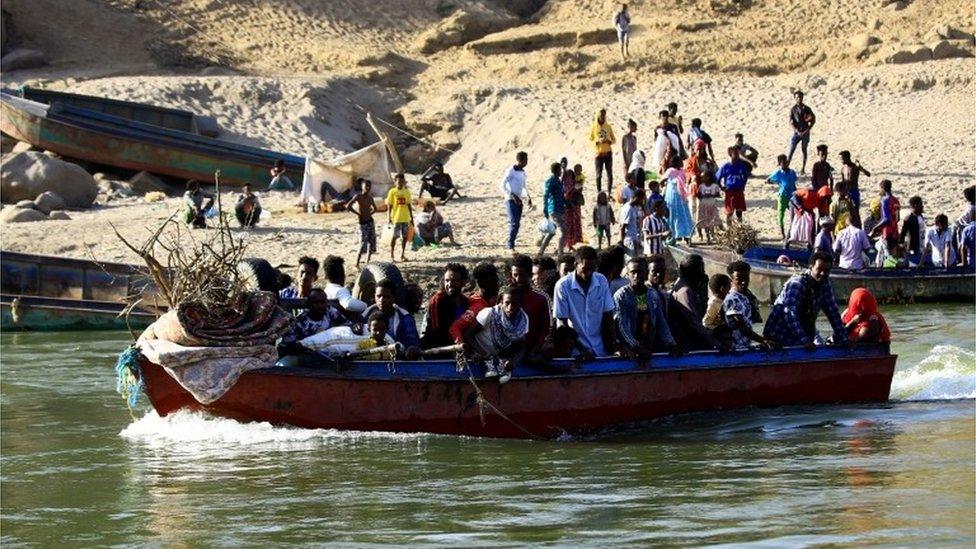
- Published6 December 2020
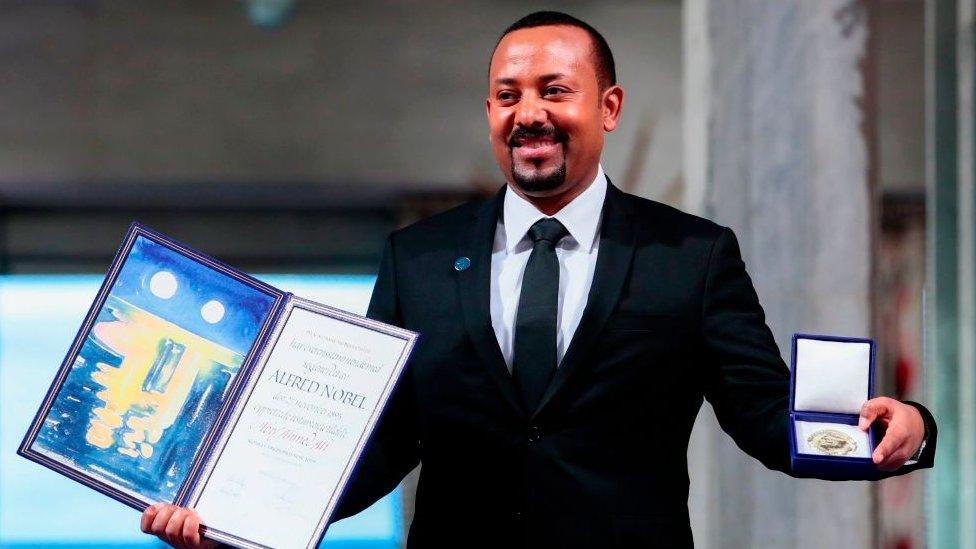
- Published5 December 2020
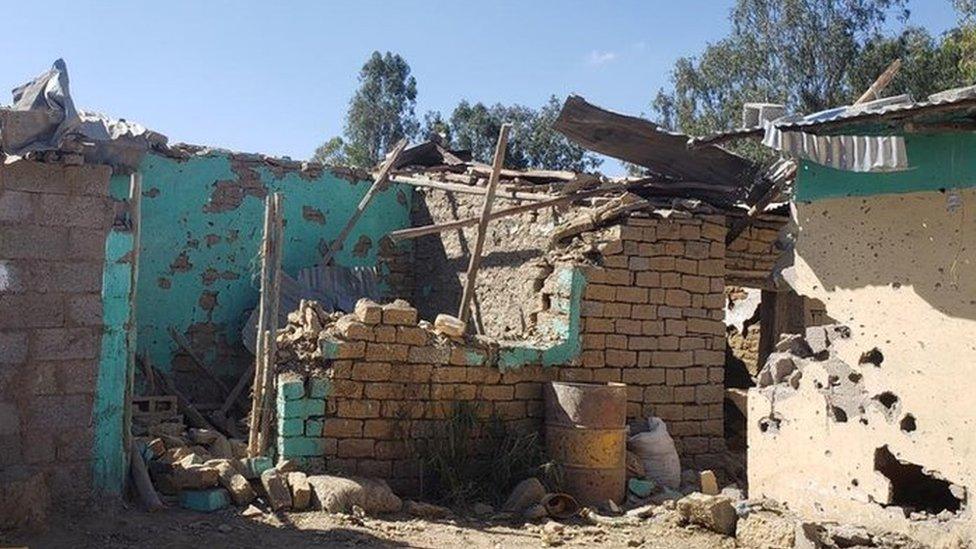
- Published29 June 2021
